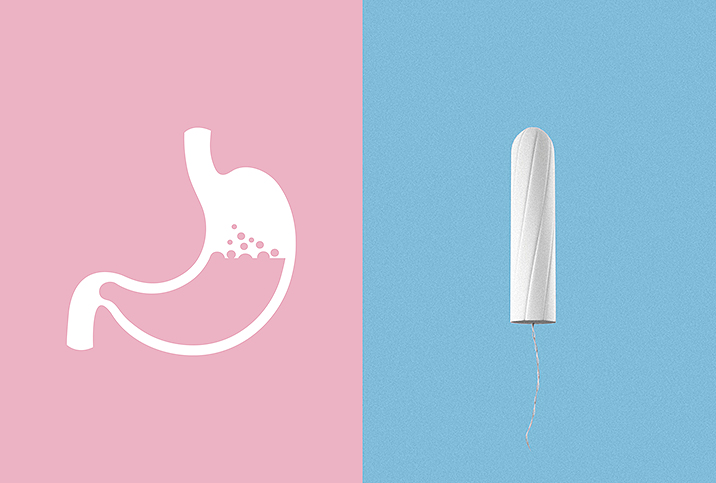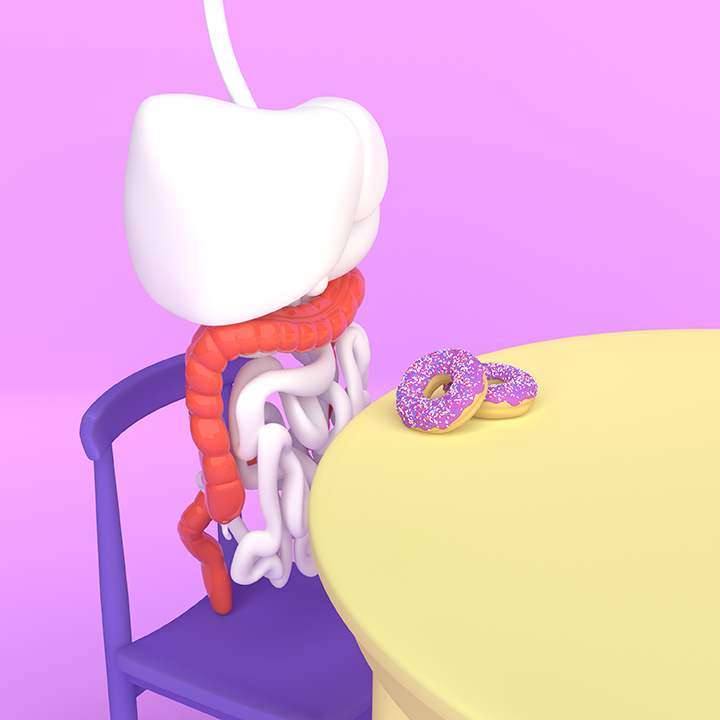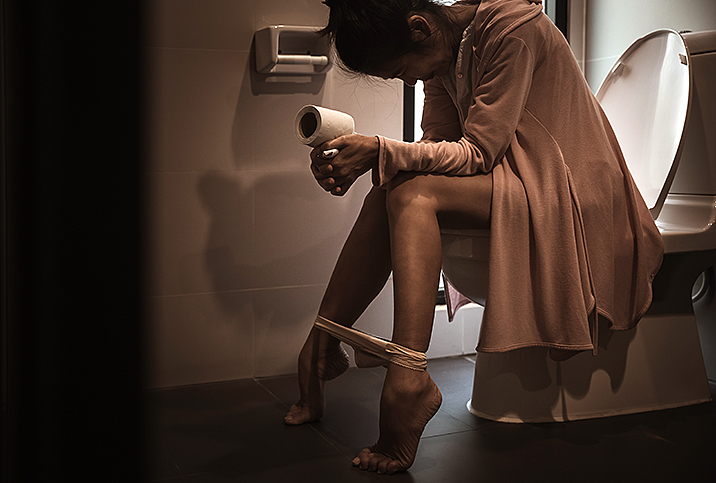The Impacts of the Menstrual Cycle on IBS

While some women experience mild, troublesome symptoms of their menstrual cycle, others can experience debilitating symptoms. Coping with premenstrual syndrome (PMS) while managing a chronic digestive condition such as irritable bowel syndrome (IBS) complicates treatment because it can be difficult to distinguish PMS from your IBS. Understanding how your menstrual cycle impacts IBS can help you manage your symptoms to improve your quality of life.
The symptoms of IBS
Irritable bowel syndrome is a condition that affects the large intestine and can cause diarrhea, constipation or an alternating combination of the two. Many people with IBS also report acid reflux or chronic heartburn because the digestive system can often become sluggish, which causes food in the stomach to take longer to empty after a meal.
This condition is often confused with inflammatory bowel disease (IBD), and while some of the symptoms may be similar, IBD specifically encompasses Crohn's and colitis, which are completely different diseases that impact the lining of the intestines by causing sores and ulcerations.
The causes of IBS vary, but most often, the intestinal contractions that move food are either longer and more intense or shorter and weaker. Either contraction can cause cramping, pain and bloating. The type of bowel contraction impacts fecal matter. For example, an intense contraction might speed up digestion and cause diarrhea, while a weak contraction will slow digestion and cause constipation.
In addition to physical causes, psychological factors such as stress, anxiety and depression can intensify symptoms. In addition to psychological factors, IBS symptoms can intensify with your monthly menstrual cycle because of shifting hormone levels.
Menstruation and IBS
As if regular menstrual symptoms weren't already disruptive, more than 50 percent of women with IBS report daily symptoms associated with their menstrual cycle. These symptoms vary from bouts of constipation and diarrhea to severe abdominal bloating and gas.
For women like me, this means I may never experience a symptom-free day. In a typical month living with IBS, I will experience diarrhea during my period, followed by a week of bloating and gas as my digestive track stabilizes. This ends just in time for PMS to begin, which causes constipation, bloating and, you guessed it, gas and abdominal pain. This cycle has been part of my life since my high school years, and it seems to have gotten worse as the stress of adulthood impacts my daily life.
While research continues on the correlation between menstruation and IBS, it's clear that many women experience more intense IBS symptoms during PMS and menstruation. One theory is that women who experience constipation during PMS may be more sensitive to progesterone levels, which increase before their period and can cause constipation. This may also explain why so many women with IBS report intensified pelvic pain, bloating, gas, fatigue and backache.
Another issue is that women who experience constipation during PMS will also experience intense bouts of diarrhea during menstruation. This is caused by the lower levels of progesterone, which increases the frequency of bowel movements, resulting in diarrhea.
Managing IBS symptoms
Keeping a diary of your symptoms can help your doctor to understand how your IBS is impacted by your cycle. The most common recommendation for IBS is the FODMAP diet, which is an elimination diet that can help people with IBS learn which foods trigger symptoms.
Eating fibrous fruits and vegetables can help to manage stool density and bowel regularity. If you suffer from daily constipation, like me, you can take low doses of laxatives daily to maintain regular bowel movements. Increasing to a full dose before your period starts can even help to prevent diarrhea during your period by keeping your bowel movements regular.
Oral contraceptives have helped some women's symptoms because they allow women to skip their periods and avoid the worst symptoms of IBS. Consulting your gastroenterologist and gynecologist is essential to avoid additional complications.
Talking to your doctor
While I still struggle to manage my IBS symptoms, I finally feel like I am on the right track. The most important part of this process is to provide full disclosure to your doctors. Don't shy away from describing your symptoms because you're embarrassed to talk about your bowel habits—withholding information could delay diagnosis.




















